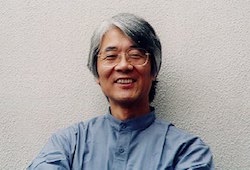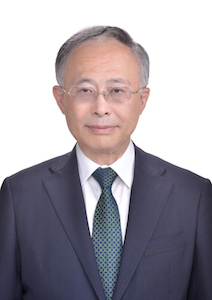Prof. Yoshinori Shiozawa, Osaka City University

- Title: Economics and the Third Mode of Scientific Research Method
- Abstract: Simulation is the third mode of scientific research method, after the theory and the experiment (including the observational study). Agent-based simulation, or multi-agent systems analysis, is for economics the third mode of scientific research method after theory and empirical studies. Artificial market is a typical example of agent-based simulation. In this presentation, I first argue the status of agent-based simulation in economics: Why do we need agent-based simulation? In which aspect of research can the agent-based simulation make the greatest contribution to the further development of economics? To elucidate these questions we need a short history of economics.
Economics started as a kind of natural history of human society and was descriptive in its nature. Method of argument was philosophical and written in prose. In the latter half of the 19th century, mathematics was gradually introduced into economics and this made tremendous influences on the logical structure of theoretical economics. Two main features of methods can be detected: (1) maximization method and (2) equilibrium. Combining these two features the idea of General Equilibrium emerged and culminated in the work of Arrow and Debreu in 1950's. Both Arrow and Debreu received separately Nobel Prize in Economics (The Sveriges Riksbank Prize in Economic Sciences in Memory of Alfred Nobel) in 1972 and 1983 respectively. Arrow and Debreu's theory became the core of microeconomics and was praised or boasted as "the most important intellectual contribution that economic thought has made to the general understanding of social processes." (Arrow and Hahn 1971 p.1; Hahn 1984 p.64) Later development in macroeconomics was deeply influenced by this achievement. A typical example is the Dynamical Stochastic General Equilibrium model which is accepted as main framework of macroeconomic analysis by both New Classical and New Keynesian economics which compose two main strands of the current mainstream economics. However, Arrow and Debreu's model had serious defects as a basic theory of economics by two reasons: (1) One must assume for human agents infinite capabilities for information collecting and computation, whereas it is well known that human being has but limited capabilities in sight and rationality. (2) Equilibrium framework suppresses all dynamic features of economic processes. See for more details Shiozawa (2016).
Even an economist like Frank Hahn who was a leading economist of the GET admitted that economic analysis must be "sequential in an essential way" (Hahn 1984 p.53). Such recognition did not lead economics to a revolution of economic analysis, because economics lacked a good method for analyzing sequential events. In addition, complex interaction between agents must be incorporated. Mathematics was not well suited to this requirement. It needed the third mode of scientific research method which is in case of economics the agent-based simulation. Thus, agent-based simulation opens a new possibility for economic sciences and we can expect that a good application of this method really revolutionizes economics in the future. For this prospectus to be realized, however, a good combination of conceptual work, mathematics, and simulation is necessary. The artificial market is providing a successful example of such a combination, but economics requires further theoretical works in order to incorporate simulation method at its core. In this presentation, I propose a new scheme of economics and consider further roles that simulation can play in it.

